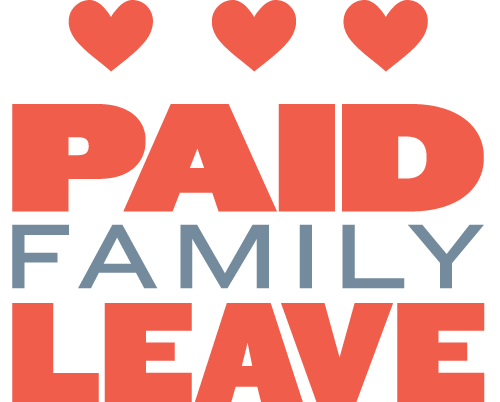FOR IMMEDIATE RELEASE
January 14, 2016
Contact: Josh Nanberg, 267/242-7268
josh@ampersandstrategies.com
Download a PDF of this press release.
EXPERTS TELL COUNCIL: COST OF PAID LEAVE FOR ALL LOW,
BUSINESS AND COMMUNITY BENEFITS SIGNIFICANT
Days after DC area was named “most expensive place to raise a family,” Council hears testimony on plan to offer 16 weeks paid family and medical leave to DC residents and employees.
Washington, DC—The cost to provide paid up to 16 weeks of paid family medical leave to DC residents and workers will be less than 1 percent of payrolls and produces benefits for employers and employees alike, as well as for the District economy, economists and social policy experts told the DC Council today.
Just last week, Marketwatch named DC the most expensive place in America to raise a family, based on data from the Economic Policy Institute, which estimated a family of four needs $106,493 to meet their basic needs. Currently, the United States is the only developed economy that does not guarantee all workers some form of paid leave. The Universal Paid Leave Act, now pending before Council, is one way for the District to support families, making sure that working parents and anyone with sick relatives or a personal illness is able to take the time to care for themselves or their families without sacrificing their economic wellbeing.
Universal paid leave also levels the playing field for small businesses who are unable to compete for top talent with large companies offering more generous benefits packages.
According to economists Heidi Hartmann and Jeff Hayes of the Institute for Women’s Policy Research (IWPR), who conducted a thorough economic and behavioral analysis of the proposal, the total cost of the program covering anyone who lives or works in the District would be below 1 percent of total payrolls. IWPR’s study was funded in part by a grant the District of Columbia received from the U.S. Department of Labor and incorporates data from the existing state programs, as well as international jurisdictions with paid leave.
The Universal Paid Leave Act builds on the successful though limited state programs in California, New Jersey and Rhode Island, and provides DC with the opportunity to be a genuine leader in guaranteeing the dignity and financial security of the area’s workforce while supporting a thriving local economy. The proposed program provides wage replacement on a sliding scale, allows for job portability and job protection, and recognizes all kinds of families and family needs.
Dr. Eileen Applebaum, Senior Economist at the Center for Economic Policy Research and one of the nation’s leading experts on the impact of paid leave programs specifically mentioned the benefits to business, which have been key to California’s paid leave program’s popularity.
“California’s paid family program provides an important benefit for employers, especially smaller employers that want to retain workers but may be unable to afford high levels of wage replacement for workers who need to take a family leave,” she said.
Many District employers and small business owners have come forward in support of the proposal now before Council.
“I don't have the revenue to offer paid parental leave out of pocket to my six employees,” said Mike Visser, owner of Flying Fish Coffee and Tea in Mount Pleasant, “but I can do it as a contributor to a citywide pool ... It’s a great deal for my business and for the District."
Dr. Ruth Milkman, President of the American Sociological Association and a Distinguished Professor of Sociology at the City University of New York noted that—despite doom-and-gloom predictions prior to the California law’s passing—the state’s business community had not seen any negative impact as a result of paid leave.
“Prior to the California law's passage, the state's Chamber of Commerce and other business lobbyists vociferously opposed paid family leave,” Dr. Milkman said. “They argued that it would be a ‘job killer’ and that small businesses in particular would be greatly burdened ... by their own account, paid family leave had no effect [on operations] or a positive effect for the vast majority of California businesses in regard to profitability/performance, productivity, employee turnover, and employee morale."
Studies have shown employees with access to paid family leave are more likely to return to their jobs following time away to care for themselves or a loved one. The IWPR analysis conducted on behalf of the district showed that most people using leave do so to recover from a serious personal medical issue, such as cancer or a significant injury. As a result of taking time to fully recover, workers return to their job healthier and more prepared to re-assume their duties.
Two December polls showed that more than 80% of District residents support the legislation, and with Council approval, D.C. would join Rhode Island, New Jersey, and California in providing paid family and medical leave to all working people and families. The D.C. Paid Family Leave Coalition, a diverse alliance of community institutions, local businesses, service providers, and advocacy organizations, seeks to enact this legislation in 2016 and launch the program as early as 2017. The coalition is part of the national movement to #LeadOnLeave for common sense paid family and medical leave policies.
“A wildly popular and incredibly affordable program that will improve the lives of every working person in DC should be a no-brainer,” DC Paid Family Leave Coalition Campaign Manager Joanna Blotner said. “We hope the Council will act quickly to pass the Universal Paid Leave Act before budget season and give people the peace of mind and security they deserve as soon as possible.”
A third hearing on the bill has been scheduled for February 11, and public testimony is invited.
###
For more about paid leave policies, visit http://www.dcpaidfamilyleave.org/resources
The full list of Paid Family Leave Coalition members is available at: www.dcpaidfamilyleave.org/coalition
